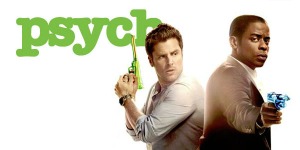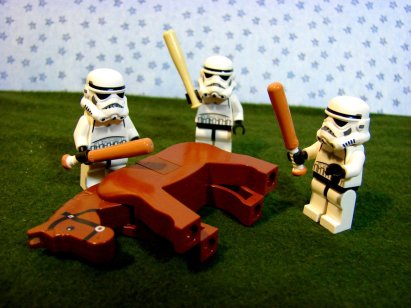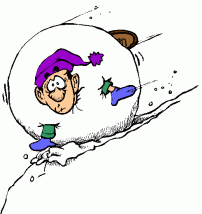Thanks to modern technology, most ‘news’ is beaten to death within hours of its release, and if you’re like me, you’d probably like to escape from it and the myriad of opinions that accompany it, for a day (maybe two). On that note, I would like to start off by apologizing for writing this in the first place. I’ve heard enough about Duck Dynasty and Phil Robertson to last a lifetime, and the last thing I would normally want to do is throw any more mud into the water; yet here I am, about to do just that. Thus, this post is an exercise in hypocrisy as I throw my hat into the very ring that I hate (when occupied by others) to flog that proverbial dead horse…
When I was younger, sometimes I would lose my cool. I had somewhat of a short fuse, and every once in a while… I can’t be the only first-grader to run away from school to avoid the consequences of having beaten up a friend during a high stakes game of soccer-baseball… can I? OK, that’s besides the point, but after incidents such as those, there was a lesson my parents endeavored to impart: count to ten.
When someone gets on your nerves; don’t punch him in the face, count to ten.
When someone says something hurtful; don’t give the first retort that comes to mind, count to ten.
When someone’s being a downright a-hole; don’t decapitate him with your Katana, count to ten. (Unless he’s a zombie. In that case don’t count, there are probably a lot of decapitations in your future – you’ll need the practice).
Its simple. All too often people don’t take time to think; instead they simply react. We’re emotional creatures and when someone hurts us, we want to hurt them back. Our fight or flight instinct is roused, and we take their eye in payment for our tooth. In other words, we escalate things. It’s the third law of motion, except that the reaction normally isn’t equal or opposite: its greater.
There is a scene in one of my favourite shows that illustrates this point better than I ever could, and I quote:
Henry: For every action there is an opposite and equal reaction. Who?
Young Gus: Isaac Newton. Third law of motion.
Henry: And how does that apply to the nature of man? Anyone? Shawn?
Young Shawn: You push, they push back.
Henry: Correct. Why?
Young Shawn: Because man is a stupid creature who would rather fight than use its brain.
Henry: And what idiot said that?
Shawn & Gus: You did.

In case you don’t know what I’m talking about… well this probably won’t help, but these are two of the guys in the quote, just not young…
Its natural. We’re human, we react without thinking, seek retributive justice, we want the last laugh, but just because its natural doesn’t make it right. As Louis Fischer wrote: “An eye for an eye leaves the whole world blind.” [A1]
So, getting back to the Duck Dynasty kerfuffle…
When Mr. Robertson’s opinions became public knowledge, did GLAAD count to ten and think; “Maybe there’s a way we can deal with this in a civilized manner?” No, they called for his head. When A&E got wind of the backlash did they count to ten and think; “Maybe there’s a way to appease the gay rights advocacy groups without enraging the fan base of our most popular show?” No, they kicked him to the curb. And when the fans learned of Mr. Robertson’s indefinite hiatus, did they count to ten and think; “Maybe there’s a way we can deal with this in a civilized manner?” No, They called for A&E’s head.
All I see is a series of reactionary retaliations that only succeed in ensuring the propagation of more hate, and in making any beneficial resolution impossible.
It is within an organization like GLAAD’s rights to call for Mr. Robertson to be punished. Does that make doing so smart? Its Debatable. It is also within a corporation like A&E (or whoever owns A&E)’s rights to let Mr. Robertson go in order to protect the corporation’s image. Does that make doing so smart? It certainly doesn’t appear so. Finally, it is within the rights of the fans (and others) to raise all hell in response to A&E’s actions. Does that make it smart? No, the snowball has gotten too large, and picked up too much momentum for smart to even be an option.
At some point over the course of the last week or so (has it even been that long?) any one of these players could have taken the time to count to ten and decide that maybe non-escalation would be a good policy for a change. Because when you push someone, they push back, and this normally goes on until somebody lands a K.O., and I don’t know about you, but as for me, that’s a lot of ugliness I’d rather avoid if it’s at all possible, especially if it could all be avoided by simply listening to our parents and counting to ten.
(I should also apologize for telling anybody to listen to their parents. I may never have been more hypocritical in my life…)
Update-Dec 23: I realize now that it may be ‘count to three’ and not ‘count to ten’… did anyone else grow up with this advice? And if so, can you help me figure out which is right?
-Shantz
Back to Post [A1]: This quote is normally attributed to Mahatma Gandhi; however, there is no evidence of his ever having said it. Louis Fischer first used this phrase in order to explain Gandhi’s concept of Satyagraha, a non-retaliatory philosophy, in an early biography of the Indian leader. It has also been used by Martin Luther King Jr. in his book Stride Toward Freedom: The Montgomery Story.




